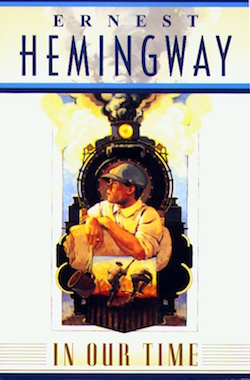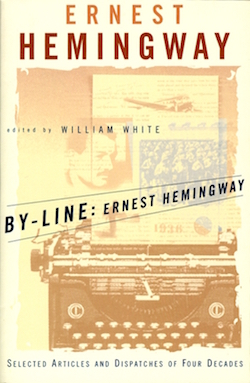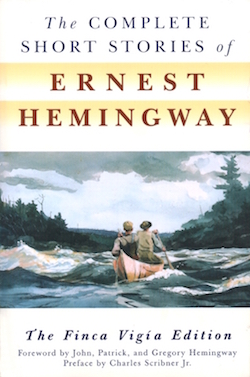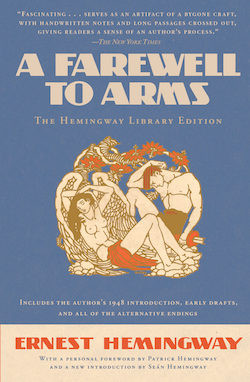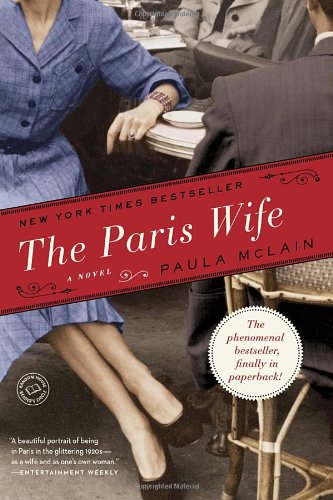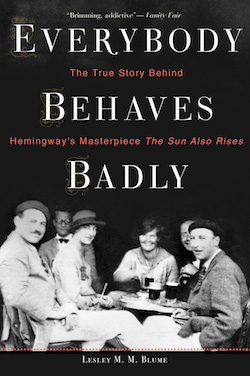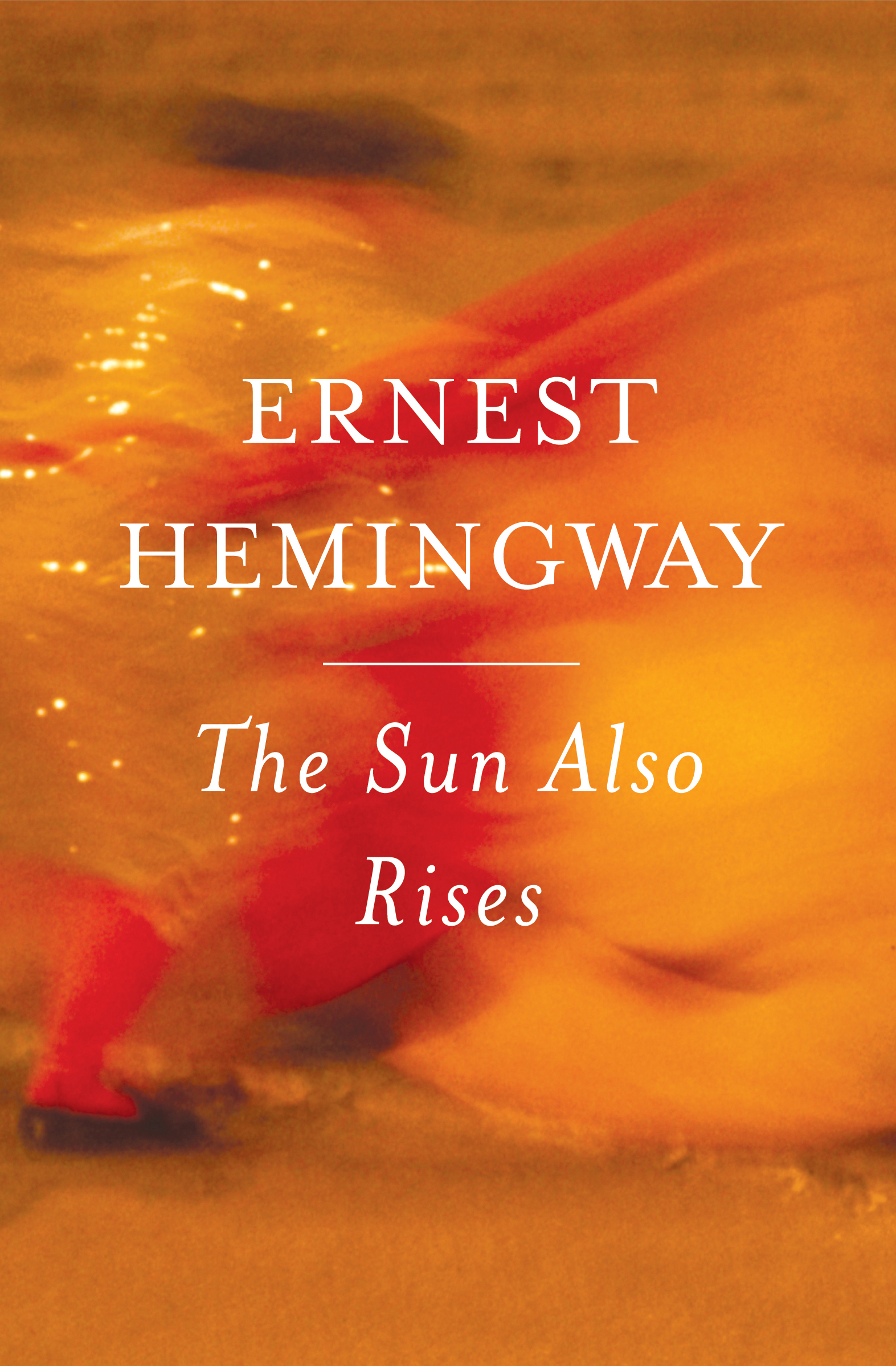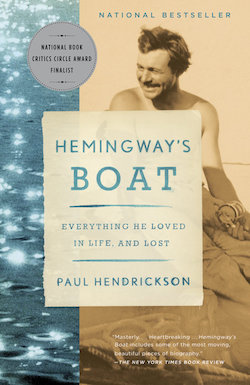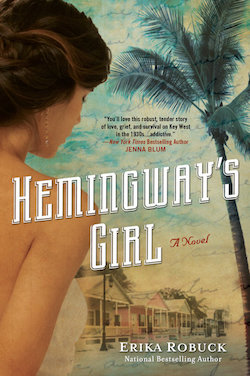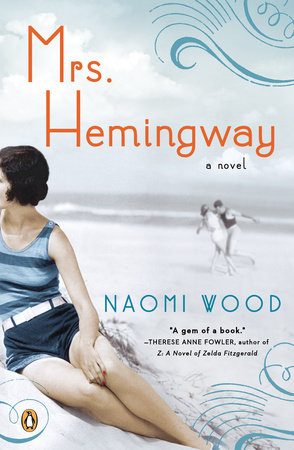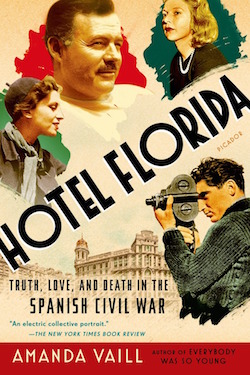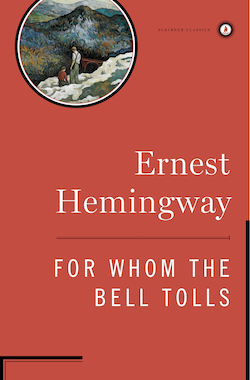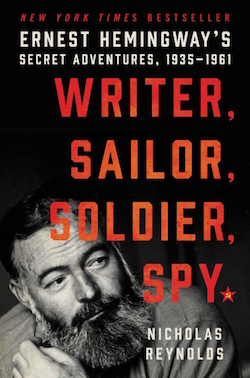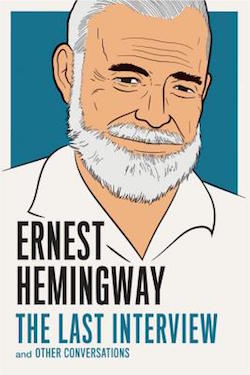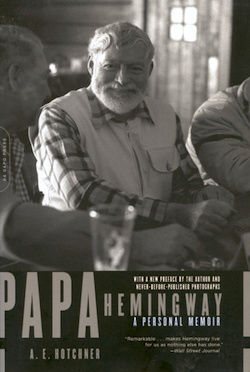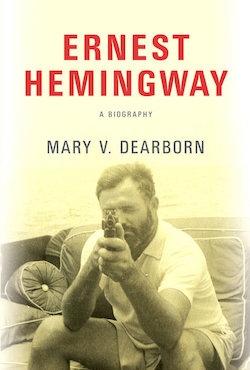Though he’s known best for his love of writing, wives, and world traveling—and yes, fine, the booze—Ernest Hemingway was so much more: a failed KGB spy, a self-proclaimed “liberator” of the Paris Ritz after the Nazi occupation, a stubborn author (he once responded to an editorial note from F. Scott Fitzgerald with three words: “Kiss my ass”), a plane crash survivor (it’s true—–the whole world thought he was dead!), and a brilliant, troubled man whose demons drove and eventually destroyed him. As Off the Shelf’s resident Lost-Generation specialist, it’s my duty to celebrate this, Papa’s 118th birthday (which I affectionately call “Heming-day”—trademark!) with a list of essential reading for any fan of this American icon.

Papa, Paris, and Pilar: 16 Books to Help You Celebrate Heming-day the Heming-way
Published by Boni & Liveright in 1925, this collection introduced the work of Ernest Hemingway to the world, and immediately made him a star. The first few stories were commissioned by Ezra Pound for his literary journal, but Hemingway added a dozen more vignettes that centered around war, bullfighting, and current events, which would define his writing for years to come.
A fan of Hemingway’s Nick Adams stories, Larson told the New York Times that his “work gave me a new way of thinking about writing—the value of weeding out adjectives and adverbs. He was, above all, a master at the art of not saying.” Pick up In Our Time to explore how Larson’s spare prose has its roots in Hemingway’s signature style.
In his early years, Hemingway developed his writing skills by working as a journalist for the Toronto Star, Colliers, and Esquire, offering a glimpse into the lives of people behind some of the most iconic events of the twentieth century. This collection features stories about everything from fighting in the Spanish Civil War and storming the beach on D-Day to fishing in Havana and hunting in Africa.
In his early years, Hemingway developed his writing skills by working as a journalist for the Toronto Star, Colliers, and Esquire, offering a glimpse into the lives of people behind some of the most iconic events of the twentieth century. This collection features stories about everything from fighting in the Spanish Civil War and storming the beach on D-Day to fishing in Havana and hunting in Afri
The definitive collection of Hemingway’s short fiction, including the classics, lesser-known pieces, and seven new tales published for the first time. The perfect addition to your Hemingway bookshelf, and a great break from his longer fiction. My two favorites are “The Snows of Kilimanjaro” and “Hills Like White Elephants,” if you’re looking for a place to start.
Based on Hemingway’s own experiences serving in World War I as an ambulance driver in Italy, this novel became his first bestseller and cemented his status as a master of both writing style and subject. Set against battlefields and a changing world, the book follows the love affair between an expatriate American lieutenant, Frederick Henry, and a nurse, Catherine Barkley. The 1932 movie adaptation with Gary Cooper and Helen Hayes is a must-see.
Written when Ernest Hemingway was thirty years old and lauded as the best American novel to emerge from World War I, A Farewell to Arms is the unforgettable story of an American ambulance driver on the Italian front and his passion for a beautiful English nurse. Set against the looming horrors of the battlefield—weary, demoralized men marching in the rain during the German attack on Caporetto; the profound struggle between loyalty and desertion—this gripping, semiautobiographical work captures the harsh realities of war and the pain of lovers caught in its inexorable sweep. Ernest Hemingway famously said that he rewrote the ending to A Farewell to Arms thirty-nine times to get the words right. This edition collects all of the alternative endings together for the first time, along with early drafts of other essential passages, offering new insight into Hemingway’s craft and creative process and the evolution of one of the greatest novels of the twentieth century. Featuring Hemingway’s own 1948 introduction to an illustrated reissue of the novel, a personal foreword by the author’s son Patrick Hemingway, and a new introduction by the author’s grandson Seán Hemingway, this edition of A Farewell to Arms is truly a celebration.
After the war, Hemingway returned to Chicago and met Hadley Richardson. Paula McLain’s bestselling novelization of their tumultuous marriage, as they travel from the United States to Paris and become part of the famed Lost Generation, is equal parts exciting and heartbreaking. Though this version is told from Hadley’s perspective, it gives great insight into Hemingway’s ambition, art, and the early fame she helped him achieve.
This deeply intimate novel captures the love affair between two unforgettable figures: Ernest Hemingway and his first wife, Hadley Richardson. Despite their extraordinary bond, the Hemingways are ill-prepared for the hard-drinking and fast-living life of Jazz Age Paris, and they find themselves facing a deception that will lead to the unraveling of everything they’ve fought so hard for.
MENTIONED IN:
During the summer of 1925, Hemingway and his friends traveled to Pamplona, Spain, to watch the running of the bulls. Over the next six weeks, he channeled the sights and shenanigans into his groundbreaking novel THE SUN ALSO RISES. This fascinating and revealing book captures the drama, betrayal, brawls, and excitement that inspired one of the most popular books in history.
During the summer of 1925, Hemingway and his friends traveled to Pamplona, Spain, to watch the running of the bulls. Over the next six weeks, he channeled the sights and shenanigans into his groundbreaking novel THE SUN ALSO RISES. This fascinating and revealing book captures the drama, betrayal, brawls, and excitement that inspired one of the most popular books in history.
Celebrated as the quintessential novel of the Lost Generation (and the novel that made Hemingway’s career), this is a story of disillusionment and angst. It features two of Hemingway’s most memorable characters—Jake Barnes and Lady Brett Ashley, who travel from Paris to Pamplona in the years after World War I. One of its more famous lines, “Everyone behaves badly, if given the chance,” inspired the title of Lesley M. M. Blume’s book, and it remains one of my all-time favorites.
Hemingway's first bestselling novel, it is the story of a group of 'Lost Generation' Americans and Brits in the 1920's on a sojourn from Paris to Pamploma, Spain. The novel poignantly details their life as expatriates on Paris' Left Bank, and conveys the brutality of bullfighting in Spain. The novel established Hemingway as one of the great prose stylists of all time.
If there’s one place more associated with Hemingway than Paris, it’s Key West (proof: there’s an Hemingway lookalike contest held every July). This award-winning biography, which provided new material and information about Hemingway’s later life, focuses on the years from 1934 to 1961, and describes the events and emotions of that period through the relationship he had with the thing he loved most: his boat, Pilar.
If there’s one place more associated with Hemingway than Paris, it’s Key West (proof: there’s an Hemingway lookalike contest held every July). This award-winning biography, which provided new material and information about Hemingway’s later life, focuses on the years from 1934 to 1961, and describes the events and emotions of that period through the relationship he had with the thing he loved most: his boat, Pilar.
Set in Depression-era Key West, Erika Robuck’s rich, compulsively readable novel tells the story of Mariella Bennet, the daughter of an American fisherman and a Cuban woman who, while struggling to support her family, attracts the interest of two men: Gavin Murray, a WWI veteran, and the world-famous writer whose wife, Pauline, hires her as a maid. As a hurricane approaches, lives collide and are changed forever.
If you loved Paula McLain’s novel, this is the natural follow-up. The story of Hemingway’s life through the perspectives of his four wives—Hadley, Pauline, Martha, and Mary—it’s a unique and fascinating look at the private side of the very public figure. Naomi Wood found love letters and telegrams from each of the marriages, so this is the perfect blend of fact and fiction. Check out my longer review of MRS. HEMINGWAY here.
Each of Ernest Hemingway’s four wives thought their love would last forever, and each one was wrong. Spanning 1920s bohemian Paris through 1960s Cold War America and based on real love letters and telegrams, and this novel explores how it was to love, and be loved by, the most famous writer of his generation.
As his second marriage began to unravel, Hemingway returned to Europe for another war, this time in his beloved Spain. There, he met war correspondent Martha Gellhorn (whom he would later marry), and photographers Robert Capa and Gerda Taro, and together they covered the country’s upheaval while ensconced in a hotel in Madrid. Amanda Vaill’s masterful approach to research and narrative make this history book a must-read.
As his second marriage began to unravel, Hemingway returned to Europe for another war, this time in his beloved Spain. There, he met war correspondent Martha Gellhorn (whom he would later marry), and photographers Robert Capa and Gerda Taro, and together they covered the country’s upheaval while ensconced in a hotel in Madrid. Amanda Vaill’s masterful approach to research and narrative make this history book a must-read.
Inspired by the war in Spain, Hemingway’s fourth novel—believed by many to be his masterpiece—centers around Robert Jordan, an American in the International Brigades. Caught between the fascists, the guerillas, and his love for a woman named Maria, Robert must confront his ideas of loyalty, courage, and defeat.
It’s no secret that Hemingway loved war and drama, but until recently it was a secret that he indulged both of those passions during a complicated and mysterious turn as a Soviet spy in the mid-twentieth century. Nicholas Reynolds, a former historian at the CIA, has written a riveting, stranger-than-fiction account of Hemingway’s relationships to the governments of the United States, Spain, and Russia, and the impact it had on his work and mind.
Before his death in 1961, Hemingway gave four final interviews, collected in this slim but powerful volume: one with The Paris Review, one with The Atlantic Monthly, one with The Star Weekly, and the last for Esquire. Though his work was always personal and revealing, these exchanges provide great insight and perspective into the mind of an icon who would later take his own life.
Between 1948 and the end of his life, A. E. Hotchner was a close personal friend of Hemingway (called “Papa” by his contemporaries), traveling around the world with him and spending significant time discussing life, women, work, and legacy. This intimate and entertaining memoir of those days is a loving and lovely portrait of Hemingway in his prime.
This new biography—the first in nearly 15 years—contains never-before-used information and material about the Pulitzer– and Nobel Prize–winning author, and is the first to be written by a woman. Drawing on years of research and interviews with those who crossed his path, it chronicles Hemingway, from his childhood to his last days, in extraordinary detail. If you’re looking for the full story of Ernest Hemingway’s life, warts and all, this is the book to pick up—it’s on my reading list for this summer!

